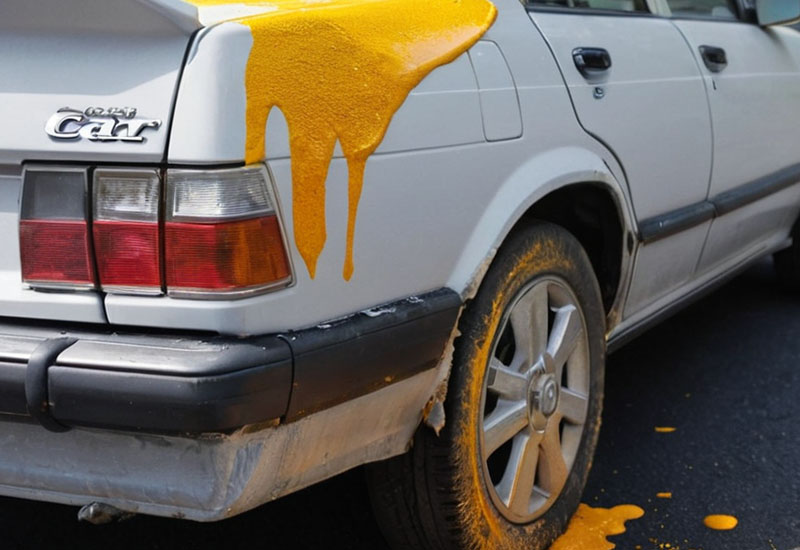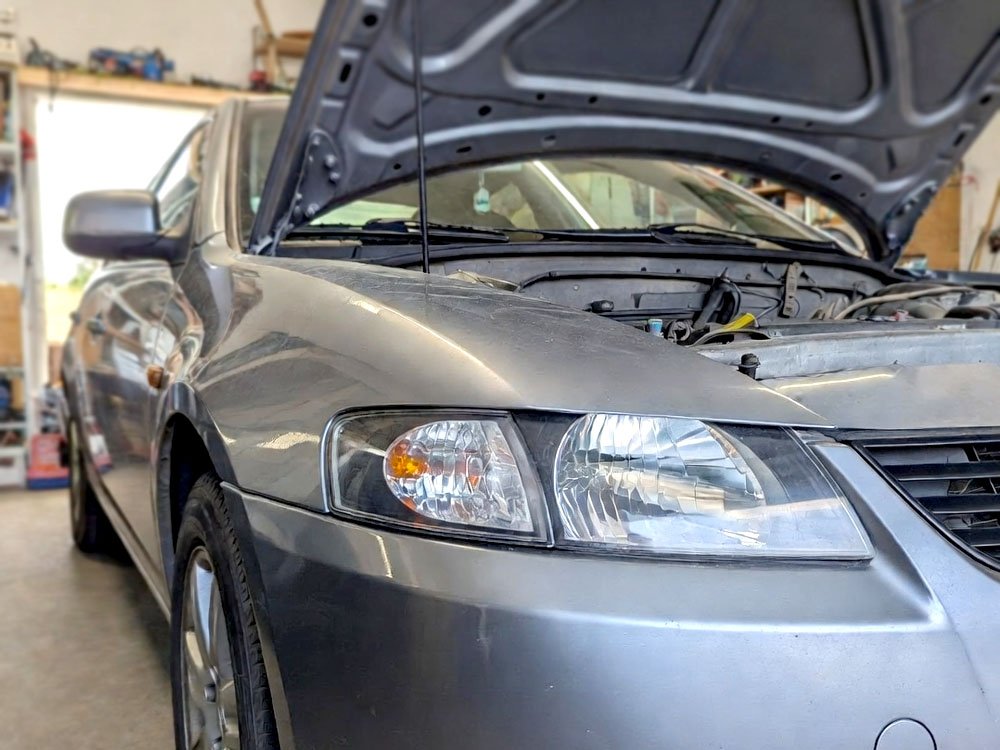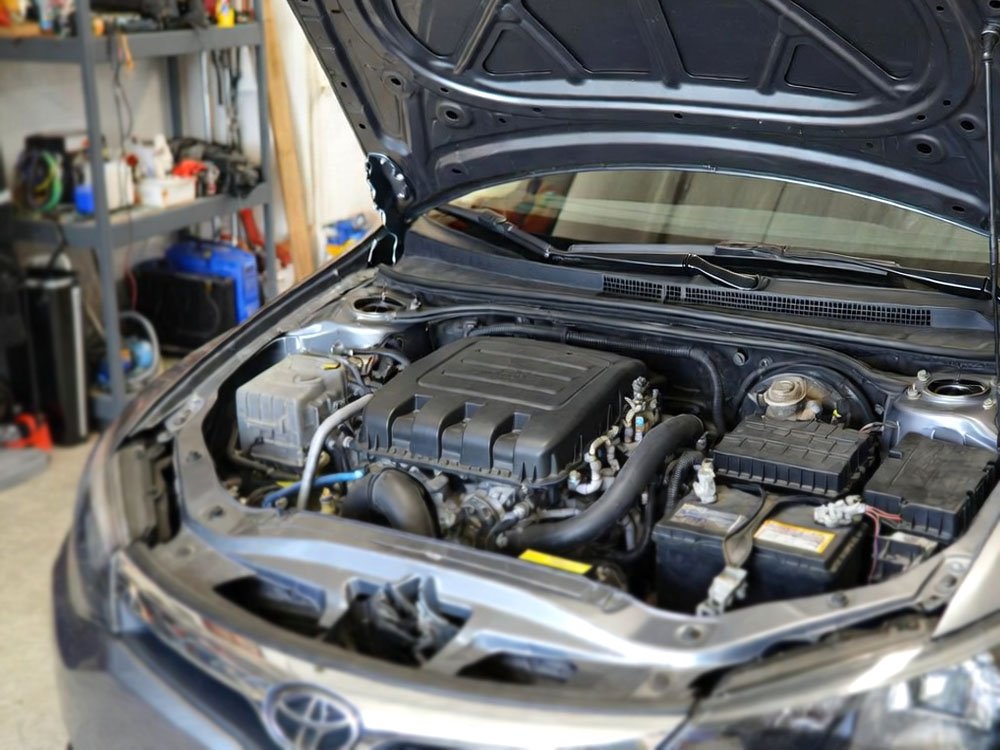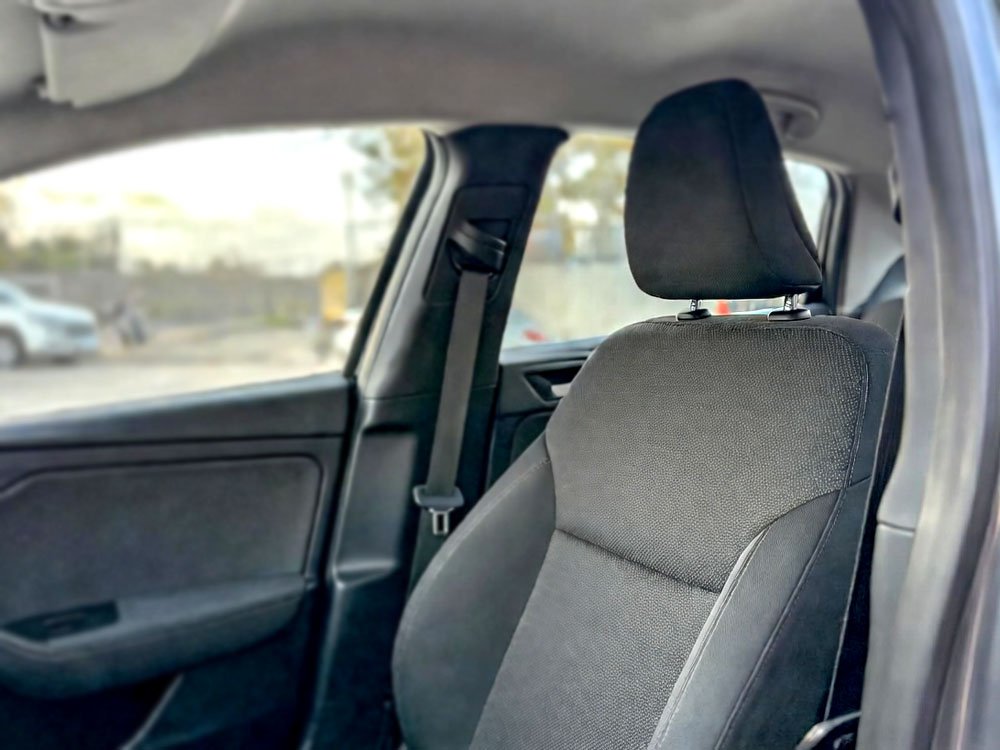Getting road paint on your car can be very frustrating. It is common to drive over wet road paint by accident and end up with splatters on your car’s paintwork. Removing road paint is not as hard as it seems, but it does require some patience and the right steps. In this guide, we will show you how to remove road paint from your car’s paint safely and effectively.
Preparation and Initial Steps
Gather Your Supplies
Before you start, gather all the supplies you will need. Here is a list of items you should have:
- A bucket of warm water
- Car wash soap
- A soft sponge or cloth
- Plastic razor blades
- Clay bar kit
- Automotive tar remover
- A microfiber towel
Wash Your Car
The first step in removing road paint is to give your car a good wash. Use the bucket of warm water and car wash soap. Wash the area with the road paint thoroughly. This helps to remove any loose dirt and makes the next steps easier.
Inspect the Affected Area
After washing your car, inspect the area where the road paint is. This will help you understand how much paint you need to remove and the best method to use. Look closely at the paint spots to see if they are thick or thin, as this will affect the removal process.
Test a Small Area
Before you start removing the road paint, it is a good idea to test a small area first. This way, you can make sure that the method you are using does not damage your car’s paint. Choose a small spot and try the removal process on it. If it works well, you can proceed with the rest of the area.
Use Protective Gear
When using products like tar remover, it is important to wear protective gear. This includes gloves and safety glasses. These products can be harsh on your skin and eyes, so it is best to protect yourself while working.
Work in a Shaded Area
Try to work in a shaded area when removing road paint from your car. Direct sunlight can cause the products you are using to dry too quickly, which can make the process more difficult. A shaded area will help you work more effectively and prevent the products from drying out.
Be Patient and Take Your Time
Removing road paint can be a time-consuming process. It is important to be patient and take your time. Rushing through the steps can lead to mistakes and potential damage to your car’s paint. Follow each step carefully and take breaks if needed.

Methods to Remove Road Paint
Using a Plastic Razor Blade
One of the safest ways to remove road paint is by using a plastic razor blade. A plastic razor blade is gentle on your car’s paint and can help scrape off the road paint without causing scratches.
- Hold the plastic razor blade at a 45-degree angle to the surface of the car.
- Gently scrape the road paint off, being careful not to press too hard.
- Wipe the area with a damp microfiber towel to remove any residue.
Applying Clay Bar
A clay bar is another effective tool for removing road paint. It helps to lift the paint off the surface without damaging your car’s paint.
- Spray the affected area with a clay lubricant.
- Rub the clay bar over the road paint in a back-and-forth motion.
- Keep the area lubricated to prevent the clay bar from sticking.
- Wipe the area with a microfiber towel after the paint is removed.
Using Automotive Tar Remover
Automotive tar remover is designed to break down tough substances like road paint. It can be very effective when used correctly.
- Spray the tar remover onto the road paint.
- Let it sit for a few minutes to break down the paint.
- Use a soft sponge or cloth to wipe away the paint.
- Repeat the process if necessary until all the paint is gone.
WD-40 Method
WD-40 can also be used to remove road paint. It works by breaking down the paint and making it easier to wipe away.
- Spray WD-40 onto the affected area.
- Let it sit for a few minutes.
- Use a soft cloth to rub the paint gently.
- Wipe the area with a clean cloth to remove any residue.
Using a Heat Gun
A heat gun can soften the road paint, making it easier to remove. However, it should be used with caution to avoid damaging your car’s paint.
- Set the heat gun to a low setting.
- Hold it a few inches away from the road paint.
- Move the heat gun back and forth to heat the paint evenly.
- Use a plastic razor blade to scrape off the softened paint.
Using Nail Polish Remover
Nail polish remover with acetone can help remove road paint, but it should be used very carefully.
- Dampen a cotton ball with nail polish remover.
- Gently rub the road paint, being careful not to press too hard.
- Wipe the area with a damp cloth to remove any residue.
- Wash and wax the area afterward to protect your car’s paint.
Finishing Up and Preventative Measures
Wash and Wax Your Car
After you have removed all the road paint, wash your car again to remove any remaining residue from the removal products. Then, apply a good quality car wax. Waxing your car will help protect the paint and give it a nice shine.
Check for Any Damage
After removing the road paint, check your car’s paint for any damage. Look for scratches, discoloration, or any other signs that the paint may have been affected. If you notice any damage, you may need to touch up the paint or seek professional help.
Apply Paint Sealant
Applying a paint sealant can help protect your car’s paint in the future. It creates a protective layer that can make it easier to remove substances like road paint if it happens again.
Regular Maintenance
Keeping your car clean and regularly maintained can help prevent road paint from sticking in the first place. Wash your car regularly and apply wax or paint sealant to protect the paint.
Avoid Driving Over Fresh Road Paint
One of the best ways to prevent road paint from getting on your car is to avoid driving over fresh road paint. Look for signs indicating roadwork and try to steer clear of areas where workers are painting lines or other markings on the road.
Use Mud Flaps
Installing mud flaps on your car can help reduce the amount of debris and substances like road paint that can get on your car’s paint. Mud flaps act as a barrier and can help protect the lower parts of your car.
Seek Professional Help if Needed
If you are unable to remove the road paint yourself or if you are worried about damaging your car’s paint, seek professional help. A professional detailer has the experience and tools needed to remove road paint safely and effectively.
Are These Questions in Your Mind?
Is it safe to use nail polish remover on car paint?
Nail polish remover with acetone can remove road paint, but it should be used very carefully. It can damage your car’s paint if not used properly. Always test on a small area first and use it sparingly.
Can WD-40 damage car paint?
WD-40 is generally safe to use on car paint in small amounts. It can help remove road paint, but it should be washed off thoroughly afterward to prevent any potential damage.
Do I need to wax my car after removing road paint?
Yes, it is a good idea to wax your car after removing road paint. Waxing helps protect your car’s paint and restores its shine. It also provides a protective barrier against future contaminants.
Can a clay bar remove all types of road paint?
A clay bar is effective at removing many types of road paint, but it may not work on very thick or old paint. For tougher spots, you may need to use additional methods like tar remover or a plastic razor blade.
Is it better to remove road paint yourself or go to a professional?
Removing road paint yourself can save money, but it requires time and patience. If you are worried about damaging your car’s paint or if the paint is very thick, it may be better to seek professional help.
Can heat guns damage car paint?
Heat guns can damage car paint if not used properly. Always use a low setting and keep the heat gun moving to avoid overheating one spot. If you are unsure, it may be best to use other methods.
Is it necessary to use a paint sealant after removing road paint?
While it is not absolutely necessary, using a paint sealant after removing road paint is a good idea. It helps protect your car’s paint and makes future cleaning easier. It creates a barrier that helps prevent contaminants from sticking.
Do I need to wash my car before removing road paint?
Yes, washing your car before removing road paint is important. It removes loose dirt and debris that can interfere with the removal process and helps you see the affected area more clearly.
Can road paint cause permanent damage to car paint?
If left on for a long time, road paint can cause permanent damage to car paint. It can bond with the paint and become difficult to remove. It is best to address the issue as soon as possible to avoid long-term damage.
Is it safe to use a plastic razor blade on car paint?
Yes, a plastic razor blade is safe to use on car paint when used correctly. It is gentle and can help scrape off road paint without causing scratches. Always use it at a 45-degree angle and apply gentle pressure.
I hope this guide helps you remove road paint from your car’s paint. It can be a bit of a process, but with patience and the right tools, you can get your car looking good as new. Remember to always test on a small area first and take your time to avoid any damage.
Keeping your car clean and protected can help prevent road paint from sticking in the future.








